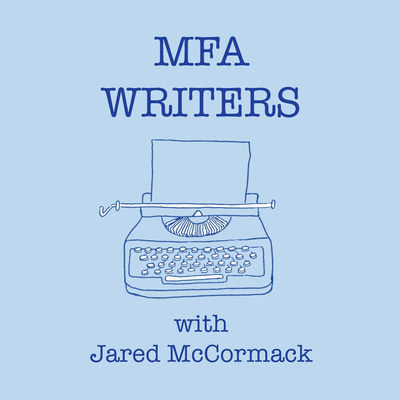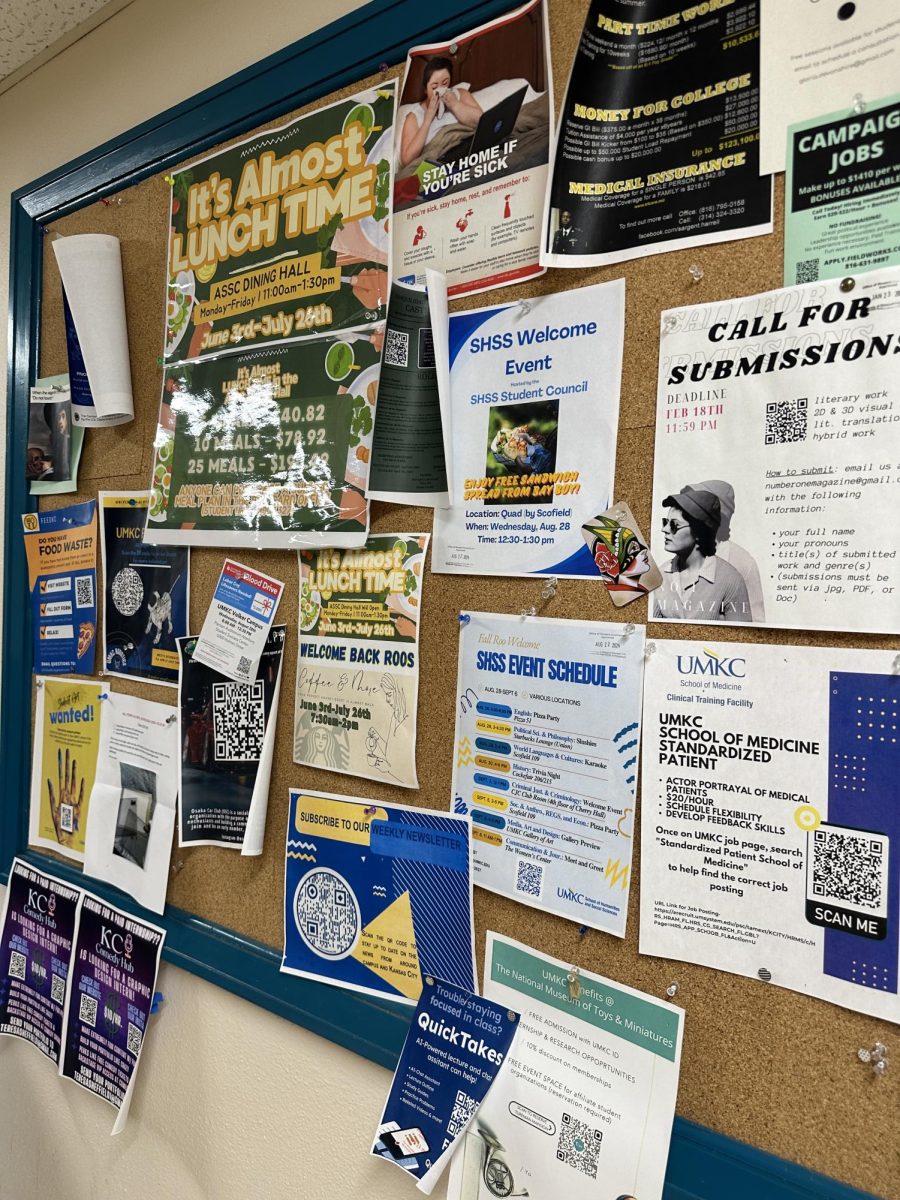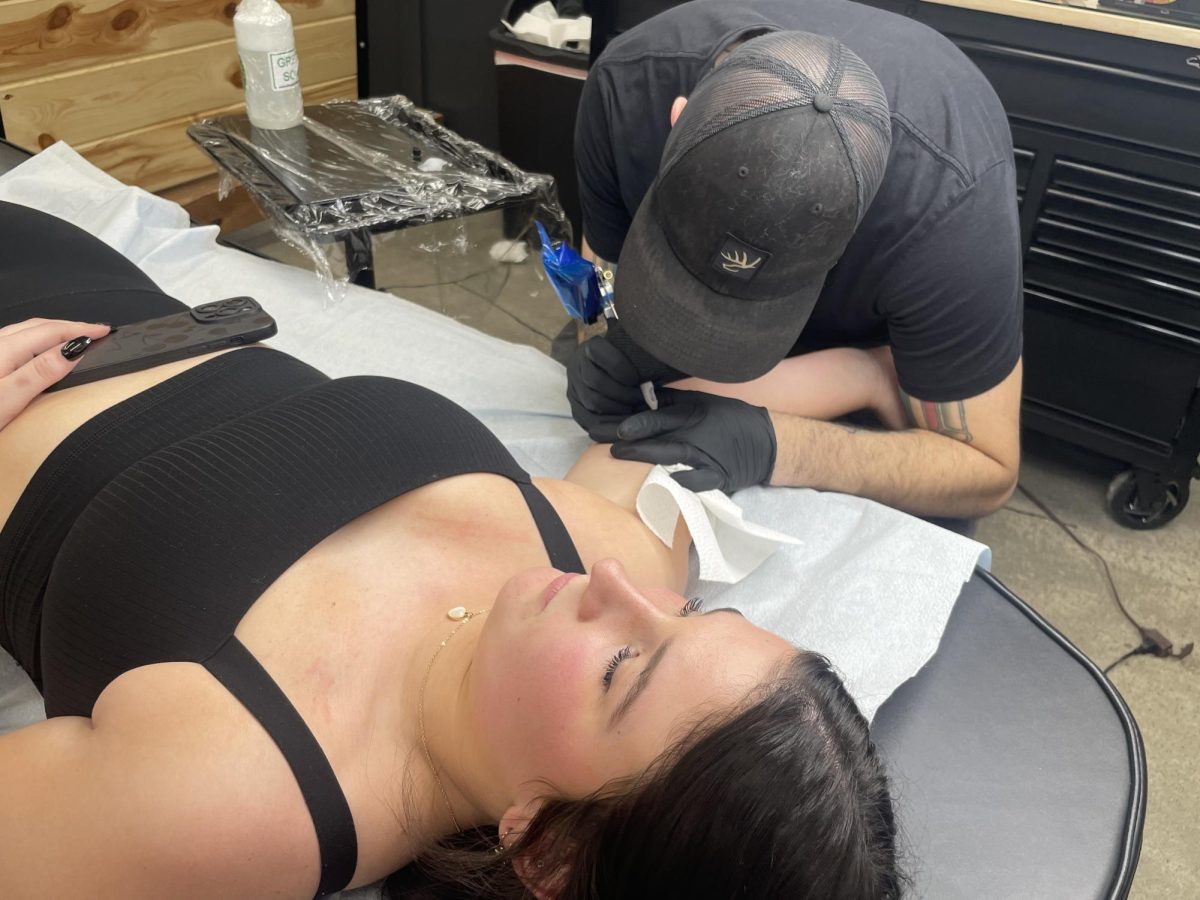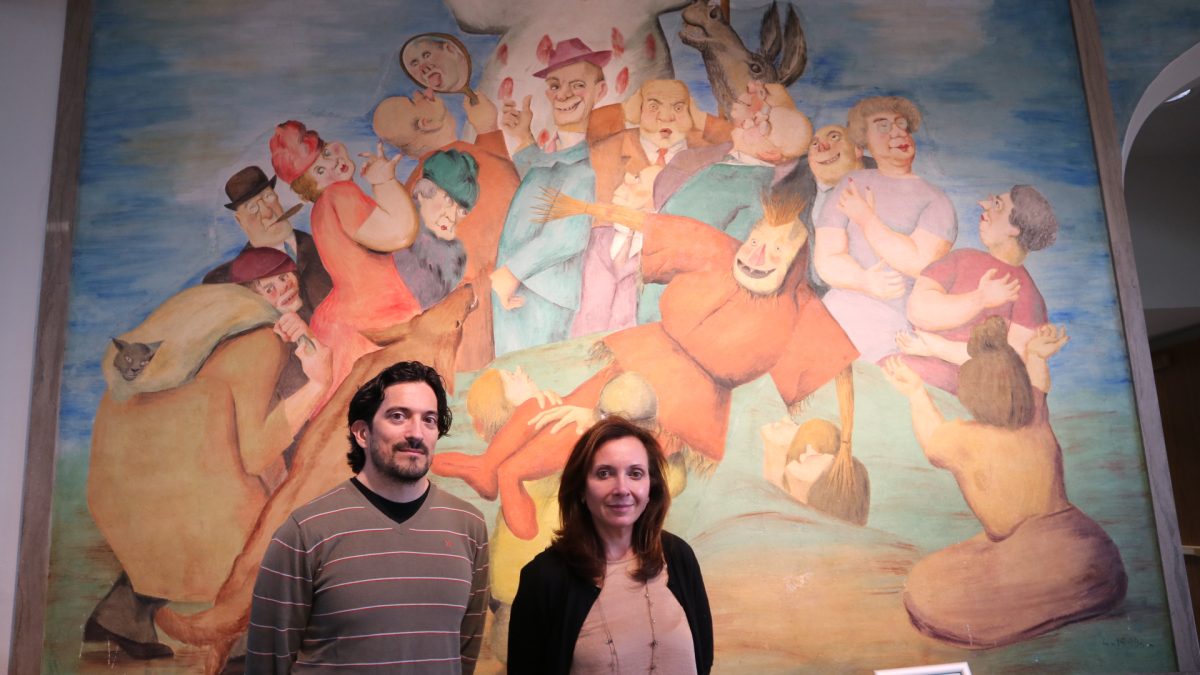When Jared McCormack first emailed award-winning author George Saunders, he didn’t know what to expect.
“You just assume he’s not going to respond,” said McCormack, a third-year MFA candidate at UMKC. “He’s one of the more famous writers out there. On the other hand, he has this reputation of being a really nice, down-to-earth guy.”
In the email, McCormack asked Saunders if he would be a guest on “MFA Writers,” a podcast hosted by McCormack where he interviews creative writing MFA students about their program, their process and a piece they’re working on. The podcast is produced by McCormack and his partner, Hanamori Skoblow.
Saunders, a MacArthur fellow and one of Time magazine’s 100 most influential people in the world (2013), didn’t say yes, but he didn’t say no, either. He told McCormack he was burnt out on interviews after releasing his craft book, “A Swim in a Pond in the Rain,” and that they should revisit in the future.
Nearly a year later, Saunders released his newest project, “Story Club,” a biweekly newsletter hosted on Substack. McCormack decided to follow up.
“I looked online, and it didn’t seem like anyone was interviewing him about ‘Story Club,’” said McCormack. “And I thought maybe asking him some things about MFA programs would be slightly more interesting for him.”
This time, Saunders said yes.
“Hana got the email,” said McCormack. “She read it out loud and we both just laughed for like five minutes straight. We couldn’t stop laughing.”
Much like Saunders, McCormack came from a working-class background and didn’t start taking writing seriously until he had traveled and experienced new cultures.
McCormack grew up in Montgomery City, a small town of around 2,500 people roughly 40 minutes outside Columbia, Missouri. While attending the University of Missouri, he looked into studying abroad but couldn’t afford it. So, after graduating in 2010 with a bachelor’s degree in English education, he sold his car and moved to Taiwan.
“I had a family friend who was teaching there,” said McCormack. “I ended up getting a job with the plan just to go for a year, but really loved it and stayed for two years.”
McCormack saved up as much as he could and moved to Argentina, where he spent a year backpacking. After Argentina, he moved to Spain for a teaching job, which is where he met Skoblow, his partner and future coproducer. Two years later, the couple moved to South Korea.
Around this time, McCormack started browsing MFA programs. There was just one problem: he didn’t know what he wanted to study. He’d been writing his whole life, from songs to fiction to screenwriting to creative nonfiction, but he couldn’t commit to one genre over another.
While he was trying to decide, McCormack discovered Saunders’ “Tenth of December,” a short story collection that won the Folio Prize and the Story Prize in 2013. McCormack was blown away.
“It was so different than any fiction I had read before,” said McCormack. “I just found myself being really emotional when I read it. Like, this is what fiction can do?”
Over the next couple years, Jared read everything Saunders had written and watched every interview he could find of Saunders. He also began writing short stories of his own.
“In a weird way, I felt like I was learning from Saunders about how to write a short story,” said McCormack. “He was like a teacher for me before I was in any program.”
McCormack eventually decided he wanted to study fiction at the MFA level. When he began researching programs, though, he was surprised by how little information there was online. Most of what he found came from university websites, which McCormack said read as inauthentic. He didn’t feel like he could fully trust that information.
“At one point, I remember thinking, I bet there’s a podcast where people interview MFA students,” said McCormack. “There’s a podcast for everything. And then I looked, and there was nothing like that.”
A few years later, during his second semester as an MFA student at UMKC, McCormack took the Fiction/Non/Fiction podcast practicum, where he created a couple practice episodes of the podcast he had imagined years prior. After the semester was over, he took MFA Writers public.
At first, he and Skoblow found the process very time-consuming. They had to research programs and solicit guests themselves. Now, less than two years later, they have both students and professors from programs across the country querying them to be on the show.
In the future, Jared plans to monetize his podcast. However, he would prefer to not have to put commercials in the middle of his episodes.
“There are websites in which maybe we could host the podcast,” said McCormack. “Or, you know, there are organizations out there, like writing organizations, who may want to help support the podcast because it is a good resource.”
McCormack typically become nervous prior to an interview, and so expected to be extra nervous before talking to Saunders. The day of the interview, though, McCormack didn’t feel any different than usual. He was surprised to find himself go quickly into interviewer mode once on the phone with Saunders.
However, about fifteen minutes into their conversation, McCormack said it suddenly hit him.
“I got this big smile on my face,” said McCormack. “Instead of fighting it, I just sort of let myself appreciate it for a moment.”
During the interview, Saunders talked about not being published until he was in his 30s and described the process of becoming a writer. What McCormack believes makes the interview stand out from others are the types of questions he asked Saunders, such as asking advice for people considering MFAs and how to get the most out of the experience.
“He does like a million interviews in which the interviewers ask him the exact same stuff every year,” said McCormack. “I could feel his energy go up when talking to him.”
After McCormack had taped the interview, he emailed Saunders to thank him for coming onto the show and to tell him how much it meant to him. He told Saunders how big of an influence he had been on his writing and that he might not even be in an MFA program if it weren’t for him.
Once again, Saunders emailed back.
“In this true George Saunders fashion, he somehow found a way, in the simplest communication, to say something that feels bigger than life,” said McCormack. “He said something like, ‘Isn’t it great to find the thing that you love?’”
In the future, McCormack plans to do more special episodes with other noteworthy guests.
Full episodes of the Saunders interview and others can be found on McCormack’s website or any podcast app.
htbn87@umsystem.edu














